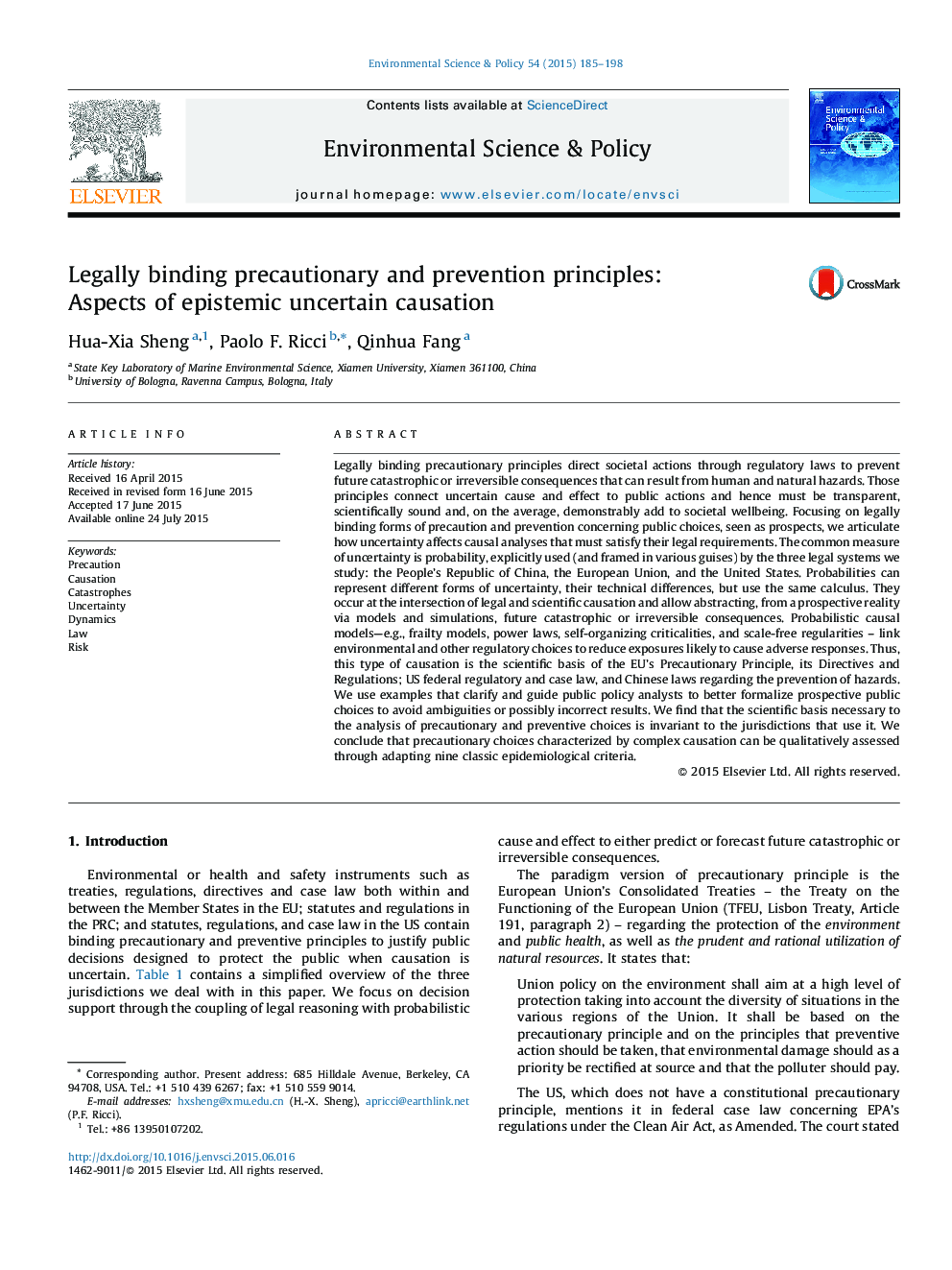| Article ID | Journal | Published Year | Pages | File Type |
|---|---|---|---|---|
| 7467247 | Environmental Science & Policy | 2015 | 14 Pages |
Abstract
- Three legal systems (the People's Republic of China, the European Union, and the US) are studied to articulate how uncertainty affects causal analyses that must satisfy legal requisites.
- We study prevention and precaution principles, and discuss how probabilistic methods are necessary to understand the wide range of outcomes-from reducing the incidence of cancer to avoiding or coping with natural or technological catastrophic events.
- We find that the scientific basis of the analysis of precautionary and preventive choices is invariant as to the jurisdictions that use it because analysis is predicated on scientific evidence of causation and analysis.
- We conclude complex causation can be assessed through epidemiological reasoning, and develop a template for this, while accounting for new knowledge is done via Bayesian or other updating rules.
Related Topics
Physical Sciences and Engineering
Energy
Renewable Energy, Sustainability and the Environment
Authors
Hua-Xia Sheng, Paolo F. Ricci, Qinhua Fang,
